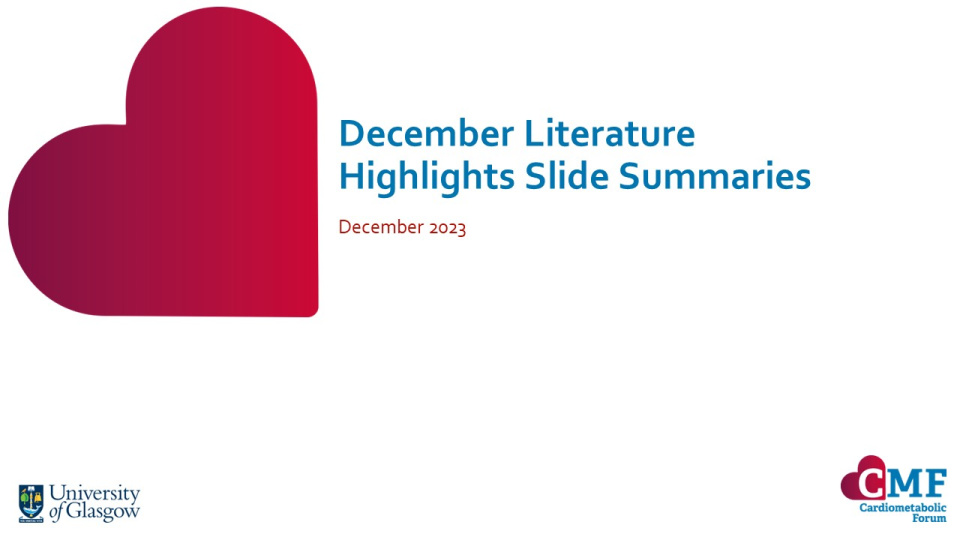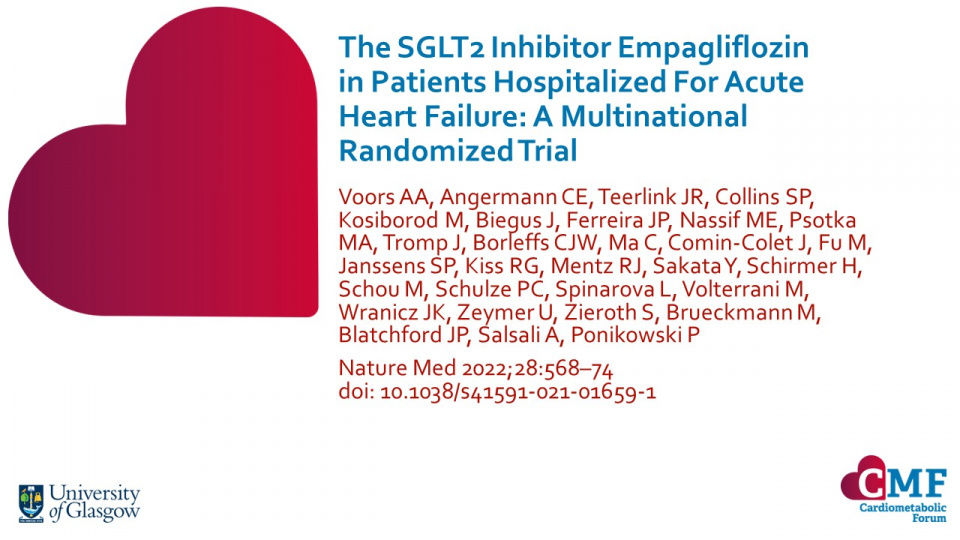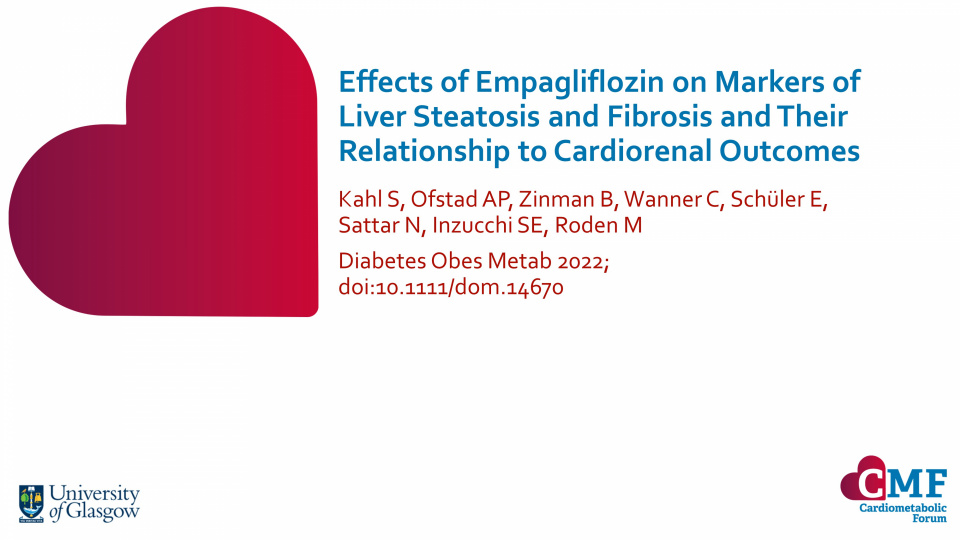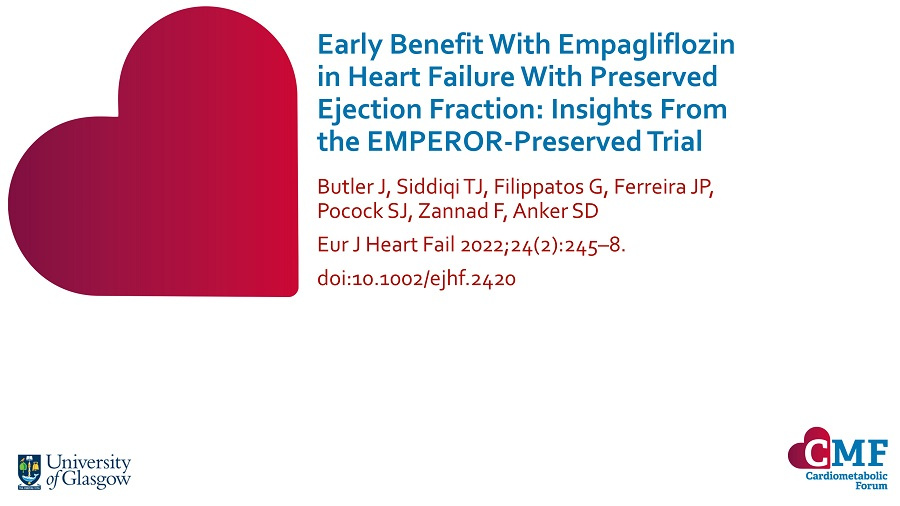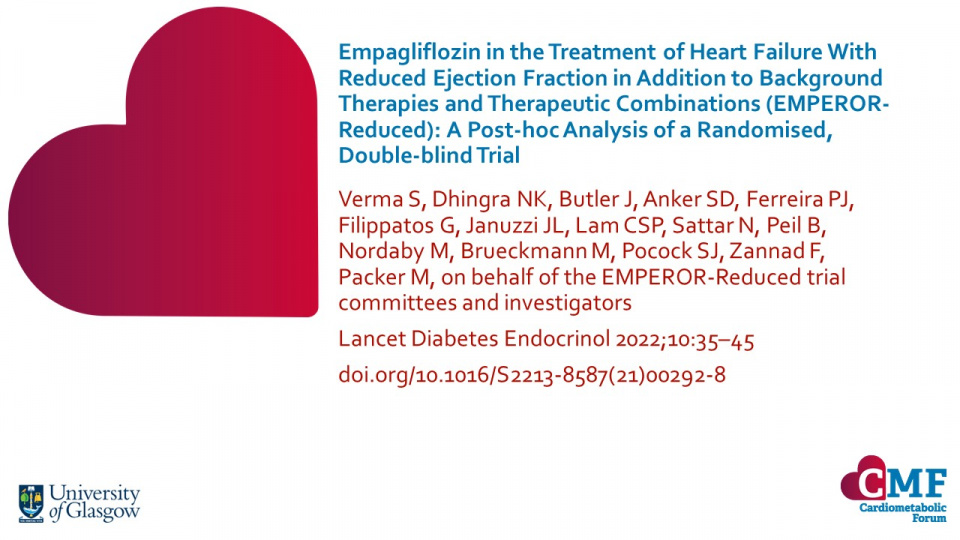Publications
Stay up to date with our literature reviews which are curated by experts to feature the most important publications released each month. Explore our publications for access to concise summary slides for your own use.
The SGLT2 Inhibitor Empagliflozin in Patients Hospitalized For Acute Heart Failure: A Multinational Randomized Trial
Nature Med 2022;28:568–74 doi: 10.1038/s41591-021-01659-1
Empagliflozin is well tolerated in patients hospitalised for acute heart failure, resulting in significant clinical benefit 90 days after treatment initiation.
Effects of Empagliflozin on Markers of Liver Steatosis and Fibrosis and Their Relationship to Cardiorenal Outcomes
Diabetes Obes Metab 2022; doi:10.1111/dom.14670
In this study of adults with T2D and established CV disease, the proportion of patients at high steatosis risk decreased slightly in patients treated with empagliflozin compared with patients treated with placebo. Fibrosis risk was not reduced.
Early Benefit With Empagliflozin in Heart Failure With Preserved Ejection Fraction: Insights From the EMPEROR-Preserved Trial
Eur J Heart Fail 2022;24(2):245–8. doi:10.1002/ejhf.2420
Results reinforce sustained clinical, health status and quality of life benefits with empagliflozin in patients with HF‑pEF, and underscore the need for timely initiation of therapy.
Empagliflozin in the Treatment of Heart Failure With Reduced Ejection Fraction in Addition to Background Therapies and Therapeutic Combinations (EMPEROR-Reduced): A Post-hoc Analysis of a Randomised, Double-blind Trial
Lancet Diabetes Endocrinol 2022;10:35–45 doi.org/10.1016/S2213-8587(21)00292-8
The data from the trial suggests that empagliflozin may be considered as a foundational therapy in heart failure with reduced ejection fraction. This post-hoc analysis of EMPEROR-Reduced – a randomised, double-blind, parallel-group trial – by Verma et al. evaluated the efficacy and safety of empagliflozin in patients with heart failure with reduced ejection fraction and to baseline treatment.

